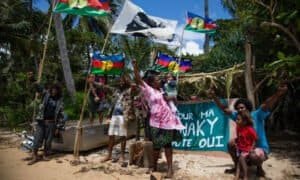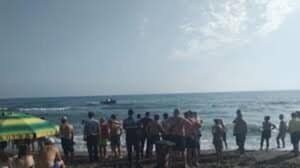Instead of supporting tourism during its most critical period, the state is now dismantling parts of it. Under the banner of legality and enforcement, heavy machinery is being deployed in key tourist areas just as thousands of visitors arrive. This raises one central question: is this truly the best way to impose order, or is it undermining years of effort to build Albania’s tourism economy?
👁️ Tourists as Witnesses to Destruction
In places like Theth and Vlora, where Albania’s most iconic natural and cultural assets are concentrated, tourists are witnessing destruction instead of discovery. Heavy construction vehicles are tearing down guesthouses and beach structures while foreign visitors are present, often filming and sharing the chaos.
In Theth, considered the alpine heart of Albania, demolition operations have created panic among local tourism operators. Many of them have invested modest personal resources for years, without state support, to develop basic accommodation and hospitality services. Now they face selective demolitions and a complete lack of transparency.
In Vlora, the situation is even more complex. The demolition of structures near the beaches and development zones has triggered confusion and fear among seasonal business owners, who play a crucial role in local employment and income generation.
⏳ Timing is not neutral — it is strategy
No one disputes the need to enforce building laws or fight illegal construction. But how and when that enforcement takes place is just as important as the law itself.
In functioning tourism economies, enforcement actions are planned during the off-season, often in winter, so as not to sabotage the industry’s peak months. In Albania, however, demolition actions are being executed in July and August, when most businesses are active and tourism is at its height.
This timing signals not strength but institutional disorganization and poor planning.
📉 The long-term damage outweighs the short-term order
Uncoordinated actions, especially when carried out without notice or communication, send a deeply damaging message to foreign investors. It suggests Albania is a legally unstable country where business plans can be overturned overnight. For tourists, it disrupts the experience and creates a perception of unpredictability and hostility.
Local operators feel abandoned. Communities lose revenue. And perhaps most importantly, a rift is growing between the state and the very people who have built tourism from the ground up.
🧭 Instead of a conclusion
The state should show strength through planning, not through force. Law enforcement must be part of a developmental strategy — transparent, scheduled, and aligned with the economic cycle.
Albania cannot afford to wake up in August to problems it ignored in February.



